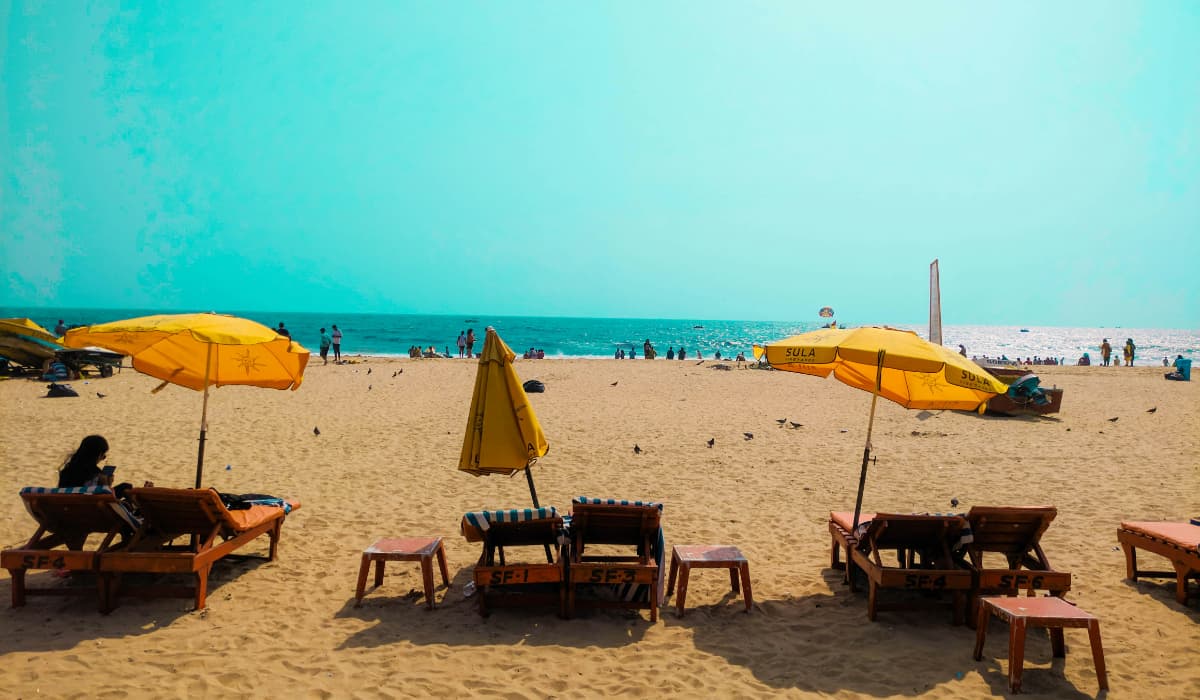
In a move to preserve its iconic beaches and ensure responsible tourism, the Goa government has introduced stringent penalties and environmental safeguards under the Goa Registration of Tourist Trade Act, 2001, and the Goa Tourist Places (Protection and Maintenance) Act, 2001. These updated regulations aim to curb public drinking, prevent careless discarding of alcohol bottles, and boost beach cleanliness ahead of the next tourist season.
Here’s everything you need to know about the new rules, penalties, and measures being implemented across the coastal state.
Tourism is the backbone of Goa’s economy, contributing over 16% to the state's GDP. However, this rapid growth has brought its own challenges: an alarming increase in public drinking, broken glass on beaches, and general littering. In response, the Goa government has introduced stricter rules to ensure both visitor safety and environmental sustainability.
Under the updated provisions of the Goa Registration of Tourist Trade Act, 2001 and the Goa Tourist Places (Protection and Maintenance) Act, 2001, drinking in public places and the careless discarding of alcohol bottles – particularly glass ones – is now prohibited across designated tourist areas.
According to Chief Minister Dr. Pramod Sawant and Tourism Minister Rohan Khaunte, violators of the new rules will face fines starting from INR 5,000 and going up to INR 50,000. The move is aimed at preventing injuries caused by broken bottles and minimizing plastic and glass waste, especially on beaches that see high tourist footfall.
“Drinking in public and breaking bottles cannot be tolerated,” said Khaunte, emphasizing the need for discipline among tourists and locals alike.
The fines will be enforced by local law enforcement and tourism officials, and strict monitoring is expected to be in place during peak travel seasons.
Contrary to fears of a complete alcohol ban, Chief Minister Dr. Sawant clarified that alcohol sales will not be prohibited. Instead, the government is examining the possibility of banning the sale of glass bottles within 50 meters of the coastal belt, citing safety and environmental concerns.
“The maximum business in Goa is from wine and bar outlets, but I will examine the possibility of banning the sale of liquor in glass bottles along the coast,” the Chief Minister said.
This measured approach aims to balance tourism revenue with ecological responsibility.

To further address the issue of glass waste, the government has proposed a glass bottle deposit-return system. Under this scheme, a refundable deposit will be charged at the point of sale for drinks in glass bottles. Consumers can claim a refund by returning the empty bottles to designated collection points.
This initiative is expected to encourage responsible disposal practices and reduce the number of bottles left behind on beaches and public spaces.
In addition to regulatory measures, the state has also launched a large-scale beach cleaning operation. Since March 1, a dedicated team of 525 workers has been deployed in rotating shifts to clean 50 beaches and 102 dead ends across Goa’s 82.2-km-long coastline.
The aim is to ensure cleaner, safer beaches for both tourists and locals. Tourism Minister Khaunte emphasized that this is just the beginning of a long-term cleanliness mission.
To foster inclusive development and shared responsibility, the government is now inviting Self-Help Groups (SHGs) to participate in the beach maintenance initiative. SHGs will be able to bid for sections of the coastline and manage them under government contracts.
“We are also open to involving SHGs in this contract. Any SHG that’s interested will be given a section of the beach to manage under the tender process,” said Khaunte.
This step not only promotes grassroots participation but also provides employment and empowerment to local communities.
Understanding the importance of proactive communication, the Tourism Department is also planning to install bilingual signage (in Hindi and English) at key tourist locations. These signs will outline rules, fines, and general etiquette, ensuring that visitors are well-informed about acceptable behaviour in Goa.
This awareness drive is slated to roll out before the start of the upcoming tourist season, aligning with other regulatory changes.
Goa welcomes over 8 million tourists annually, and with such massive footfall, maintaining environmental balance and public safety has become more challenging. The surge in unauthorised activities, broken glass-related injuries, and public misconduct has raised alarms, prompting the government to tighten its legal framework.
“This amendment gives us the legal tools we need to control these issues and protect the image of Goa,” stated Tourism Minister Rohan Khaunte.
Goa’s recent crackdown on public drinking and careless littering marks a pivotal step in reshaping its tourism narrative. While alcohol isn't being banned, how it's sold, consumed, and disposed of is being brought under strict regulation. From hefty fines and deposit-return schemes to beach clean-ups and community involvement, the Goa government is tackling the problem from all fronts.
Clean beaches, safe tourists, and responsible tourism – that’s the new vision for Goa.